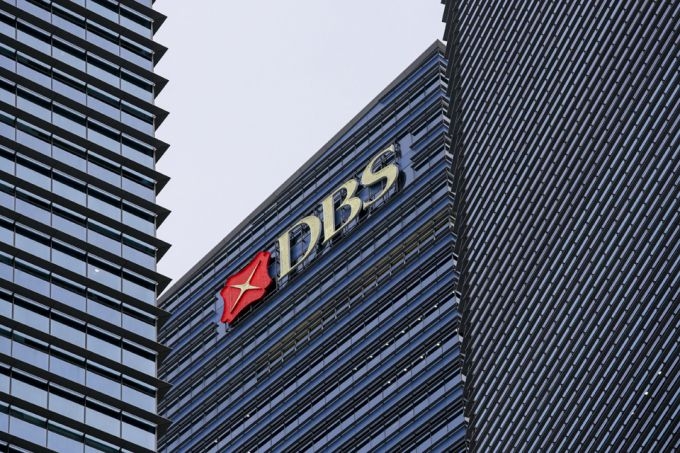Banks to speed up shrinking and shifting of CBD space amid hybrid work

BANKS have scaled back their physical footprints in prime office areas over the last decade, as they reviewed and consolidated their operations. But the pandemic is likely to push some to make more cuts.
Among the more recent develoments on this front is news that DBS is thinking about giving up office space in Singapore's Marina Bay Financial Centre (MBFC) as well as in Hong Kong.
DBS is reportedly giving up two and a half floors, or 75,000 square feet, in MBFC Tower 3 in December, according to Bloomberg. Singapore's largest bank is the anchor tenant there, occupying more than a dozen floors in the building located in the central business district (CBD). The bank declined to comment on the report.
With this, DBS joins the likes of Standard Chartered, UBS, Citi and Mizuho in trimming or making plans to trim office space in central locations around the world.
In Singapore, ANZ is said to be giving up a floor in Ocean Financial Centre this year. Standard Chartered, meanwhile, is thinking of letting go of space in MBFC when its lease is up, according to sources.
This shrinking and shuffling of physical networks has in fact been going on since the Global Financial Crisis (GFC) in 2009, said one market observer, as the banks rationalise operations due to changes in strategy as well as to become more cost-efficient.
Andrew Tangye, executive director and head of office leasing advisory at real estate consultancy Jones Lang LaSalle (JLL), said the moves are "not a big story as many banks have been restructuring due to the major reforms after the GFC".
In Singapore, he said, banks with scale have gradually moved certain operations - usually back- and middle-office positions - from the more expensive CBD to Changi Business Park and Mapletree Business City, or even out of Singapore.
But Mr Tangye said the space shed by banks over the past few years is only a small part of overall office occupancy, and most of the vacated space is taken up by other sectors such as tech or by new market entrants.
"Despite Covid-19, demand has been relatively stable and the volume of surrendered space by banks has not yet been as much as in 2009," he said. "The supply pipeline for the next five years is about 50 per cent less per annum than that of the past decade, and there is also some supply withdrawal as a result of redevelopment, so supply dynamics are helping to offset some of the current weakness in the market from banks wanting to give up space."
Banks have tended to adjust their physical networks based on shifts in strategy and needs.
HSBC recently moved its head office in Singapore from Collyer Quay to become the anchor tenant of MBFC Tower 2 to accommodate the bank's growth plans. It also upgraded its other office at Mapletree Business City and released one floor there.
Asked about its office space plans, HSBC said it is "broadly keeping our footprint whilst moving to a new Future of Work".
With Covid-19 and the growing acceptance of hybrid work models, it is likely that banks will continue to evaluate their office space in Singapore. More may choose to let go of space when the pandemic dust settles, said industry watchers.
"Some banks will consider a front- and back-office split to enhance business continuity planning arrangements in the event of another pandemic, creating flexibility by bringing jobs closer to people's homes and saving costs in the long run," said JLL's Mr Tangye.
DBS and UOB are already giving staff the flexibility to work remotely up to 40 per cent of the time, or two days a week.
And all three local banks are in the midst of reconfiguring offices to become more open and collaborative.
DBS has also said it will see more use of satellite offices.
A mass exodus is unlikely, however. OCBC and UOB own the buildings in Raffles Place that serve as their headquarters, putting them in a different position from DBS.
A check with Citi indicated no further changes to its physical footprint in Singapore following its move to give up several floors in 2020 to Amazon. StanChart and Maybank declined to comment on their real estate strategy.
Even so, Thilan Wickramasinghe - who is head of both research and regional financials at Maybank Kim Eng - said increasing investments in technology and automation have reduced the need for space in the CBD while driving demand to clusters outside.
"With Covid-19, a number of banks have announced and others are considering permanent flexi-work arrangements," he said. "This is likely to further downsize CBD office space requirements."
Derek Tan, an analyst at DBS, said the hybrid work experiment has been "fairly successful" over the past year. Companies are therefore likely to look at crystallising occupancy savings in the near term.
In an earlier report he co-authored with analyst Rachel Tan, the two had anticipated that the banking sector will see a 30 per cent reduction in office space over the next few years as office leases are due.
"We are not seeing it yet as this is likely to happen in phases," he said. Banks could be cautious in the immediate term, as they may need to hire when the economy recovers.
"They need to strike a balance between cost savings and employee needs," said Mr Tan.
JLL's Mr Tangye said some of the changes were cyclical. "As we have witnessed before, after other crises it is typical for banks to give up space in an attempt to reduce costs. But as the economy picks up again it is also those firms that have tended to start expanding again."
As bank staff gradually return to the office in Singapore and start getting reacquainted with colleagues and the workspace, he said, it will be easier for the banks to determine more precisely what space will be needed in the medium to long term.
And the workspace still has a role to play in the competition for talent, he added. "Cost has always been a major factor for banks, but what has become increasingly more important is designing a workplace that can deliver a great occupier experience with a strong emphasis on sustainability and wellness."




